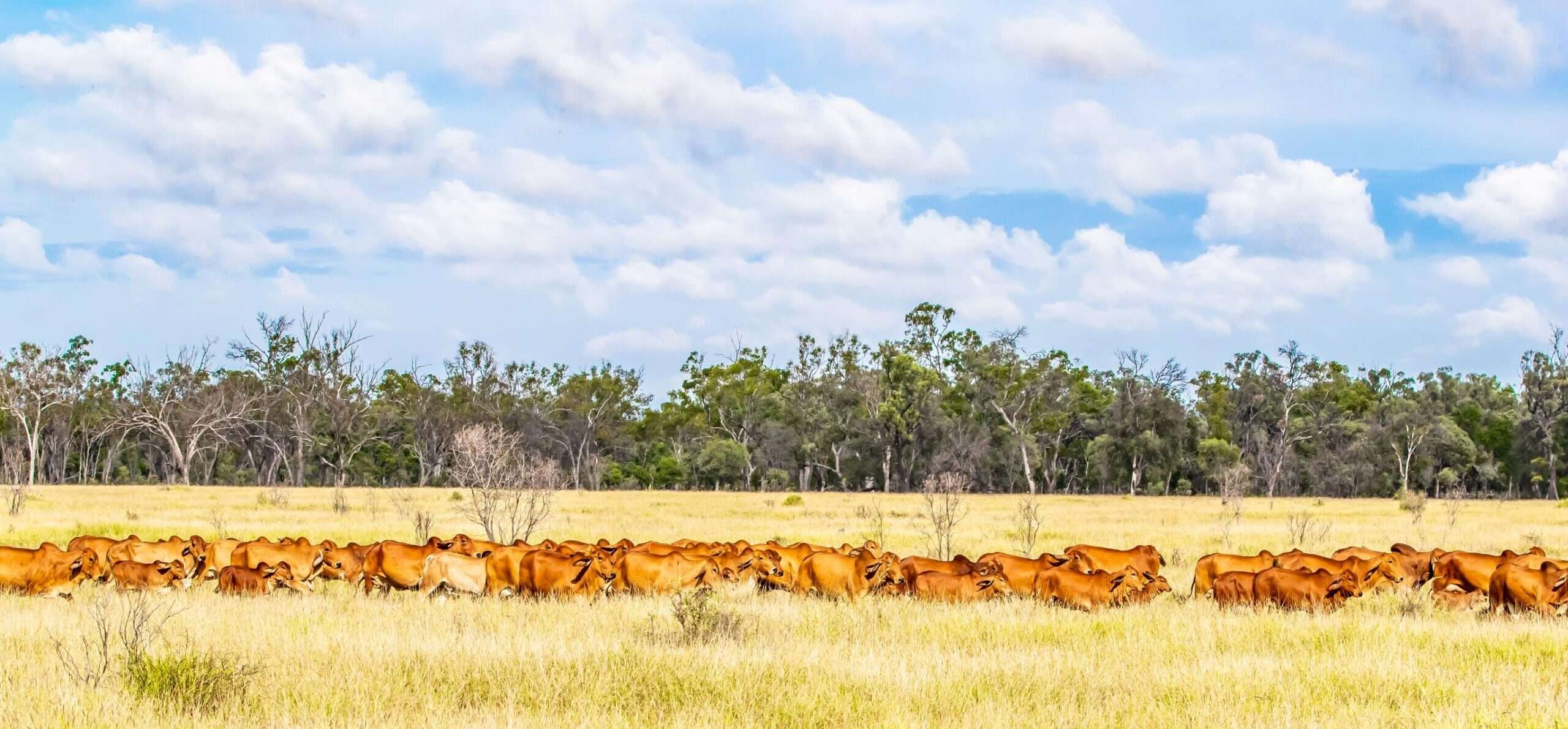New research has found that managing the growth rate of cattle from weaning is just as important as what they are fed in the feedlot in terms of determining meat quality and yield.
Because an animal’s growth rate at a young age has a strong influence on its carcase traits, it is vitally important to “set up” animals for optimum feedlot performance, says MLA’s Hutton Oddy in his paper entitled “How Growth Affects Carcase and Meat Quality Attributes”.
“A common assumption made when discussing performance of feedlot cattle and feedlot nutrition is that what is fed in the feedyard has the biggest bearing on animal performance and, in turn, profitability. This is not so,” he says in the paper.
“Potential growth, ultimate body composition (hence yield and marbling) and objective measures of toughness of the meat are influenced at least as much by what and how much the cattle eat before they get to the feedyard, as by what they eat in it.”
Research projects have found that the effect of a nutritional setback varied depending at what age the setback occurred. If a serious setback occurred early in an animal’s life, the long term effects were greater than if it occurred later in life.
Mr Oddy said Beef CRC trials had indicated that the northern Australian practice of weaning at three to four months of age, to increase the reproductive rate of the cow herd, could potentially cause tougher meat and delay turnoff by up to six months.
“The northern Australian experience has shown that, without adequate inputs (and thus calf growth rate), early weaners (3 months/100kg) may be up to six months older at turnoff than calves weaned at seven to nine months.
“Moreover, calves with low growth in the first dry season had lower growth rates in the feedlot later in life and markedly increased variation in carcase weights.
“Meat from calves with low growth rate (<0.5g/d) in the first dry season were potentially “chewier” . A growth rate of a least 0.6kg/d in the first dry season seems to be the most cost effective strategy (for at least until the calves weigh more than 250kg).”
Mr Oddy said that studies had shown that in “well grown” cattle – ie. with no significant nutritional setbacks – the protein gain slowly decreased as an animal grew and the fat gain increased slowly at first, then more quickly after a certain point at which fattening was thought to commence.
If feed restriction happens early in life (before 250kg liveweight and for at least two months with a growth rate of less than 0.4kg/day) then, on re-feeding, protein mass may not catch up to the expected amount for the animal’s genotype, but fat gain may commence prematurely. That is, these animals may grow slower and be fatter than their well fed siblings.
Mr Oddy said those animals who had a setback later in life, after 250kg, may catch up the protein mass, but have delayed fat deposition, therefore finishing leaner than their well fed siblings.
This variation in fatness affects meat quality in two ways.
“Where the growth pattern affects intramuscular fat content (marbling) it can affect flavour and, in some markets, price paid for meat.
“Where growth pattern influences subcutaneous fat (P8, 12th rib) depth, it can affect the rate of cooling of the carcase and hence toughness.”
The growth pattern also influences tenderness by affecting the relationship between muscle fibres and the connective tissue matrix.
“Slow growth increases the physical effects of the connective tissue matrix and results in increased baseline toughness,” he said.
“These relationships have been repeatedly observed in Beef CRC research projects and now underpin the MSA system. They imply that management of growth pattern of cattle is important to achieve growth, fatness, yield and meat quality goals in a range of different production systems.”

